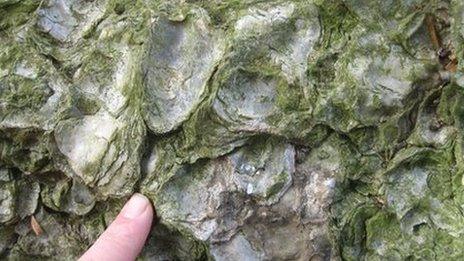Oxburgh Hall: Photos from 1946 help restore Tudor manor parkland
- Published
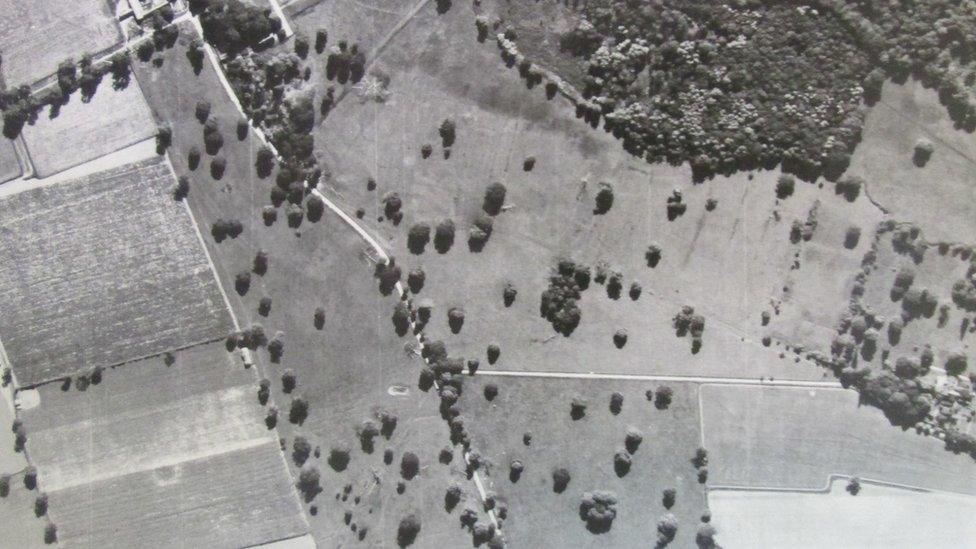
A photo taken by the RAF in 1946 is being used by conservationists to help restore parkland at Oxburgh Hall
Conservationists working to restore 19th Century parkland at a National Trust property are being helped by aerial photos taken by the RAF in 1946.
After World War Two, the grounds of Oxburgh Hall, Norfolk, were repurposed as farmland to help feed the nation.
Historian Dr Sarah Rutherford said the photographs, as well as a map from 1904, "show numerous trees" and will be used as a guide for the scheme.
The project will plant 227 trees in a bid to create habitats for wildlife.
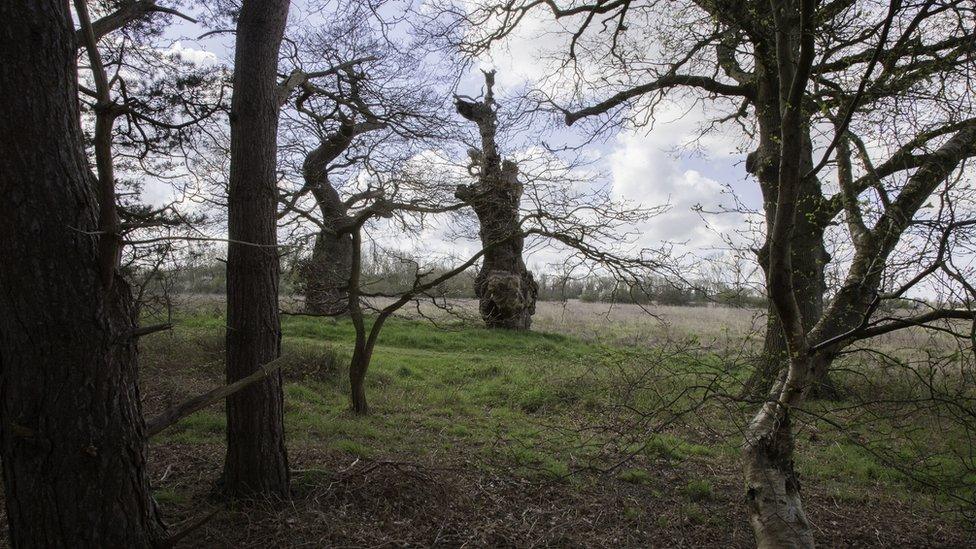
Ten ancient trees will feature in the redesigned landscape
The 15th Century manor house was bought by the National Trust in 1951 to save it from demolition.
At the time, the charity was only able to buy a few acres of the wider estate.
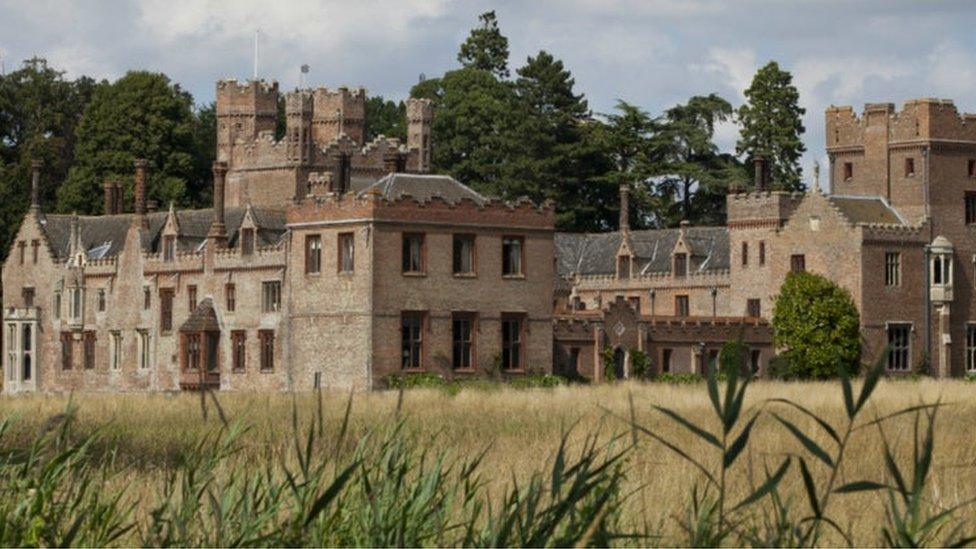
Oxburgh Hall was built as a statement of "power and prestige"
In 2017 it acquired 125 acres and work has started to restore 175 of the original 400 acres of parkland.
Conservationists will plant a variety of trees including the rare black poplar, white willow and oak in an attempt to attract more wildlife and increase biodiversity.
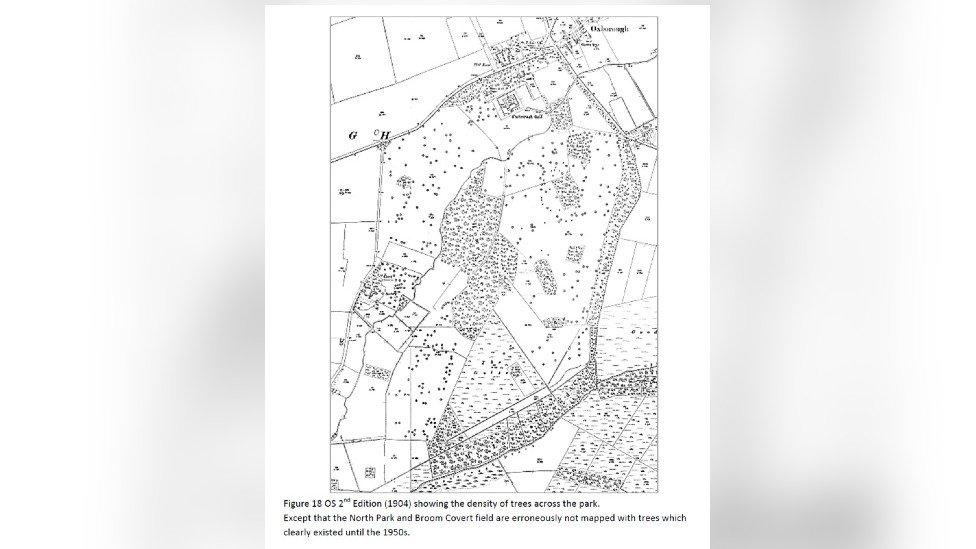
A Victorian Ordnance Survey map from 1904 has also assisted the team with the project
Ms Rutherford said: "Fortunately, we have the sales details for the trees sold at auction (to be cut for timber) and we're using this to identify the individual locations and species of trees for replanting after making some adjustments for the impacts of current challenges, such as climate change and ash dieback where the historic species would no longer thrive."
It is hoped the new trees will benefit wildlife including the hornet moth, woodpecker and bats.
Native rare breed cattle will also be brought back to graze the land.
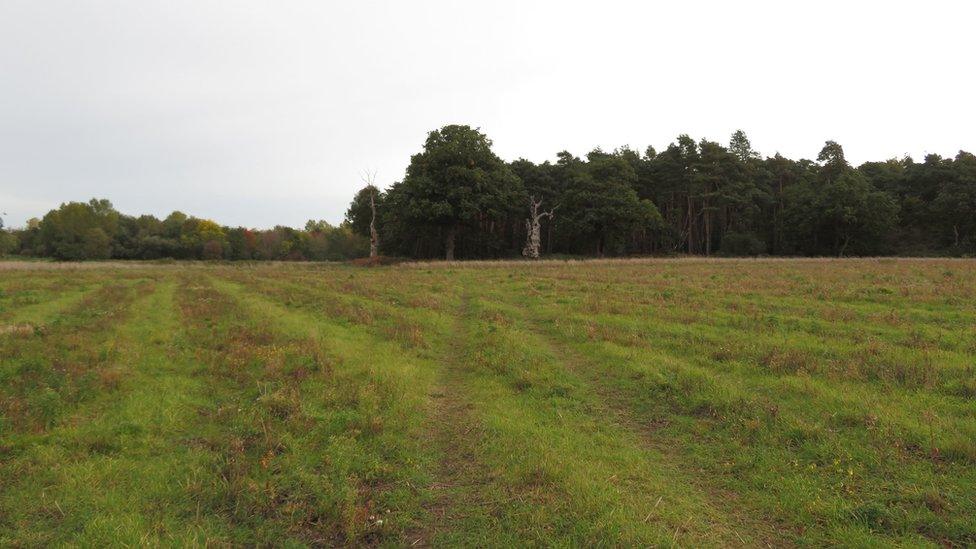
The £190,000 project is being funded by Natural England, Historic England and National Trust members and supporters
Area ranger Tom Day, who is overseeing the project, said the parkland was "the missing piece in the jigsaw puzzle".
"You can see from old maps, the landscape once looked very different to what it does today," he said.
As well as additional trees, the team will reprofile and scrub ditches while also recreating ponds and lowland meadows.
Oxburgh Hall general manger Russell Clement said: "It's humbling and a privilege to be part of a restoration which will still be in its infancy in my lifetime, knowing it will benefit people and nature for centuries to come."

Find BBC News: East of England on Facebook, external, Instagram, external and Twitter, external. If you have a story suggestion email eastofenglandnews@bbc.co.uk, external
Related topics
- Published31 March 2021
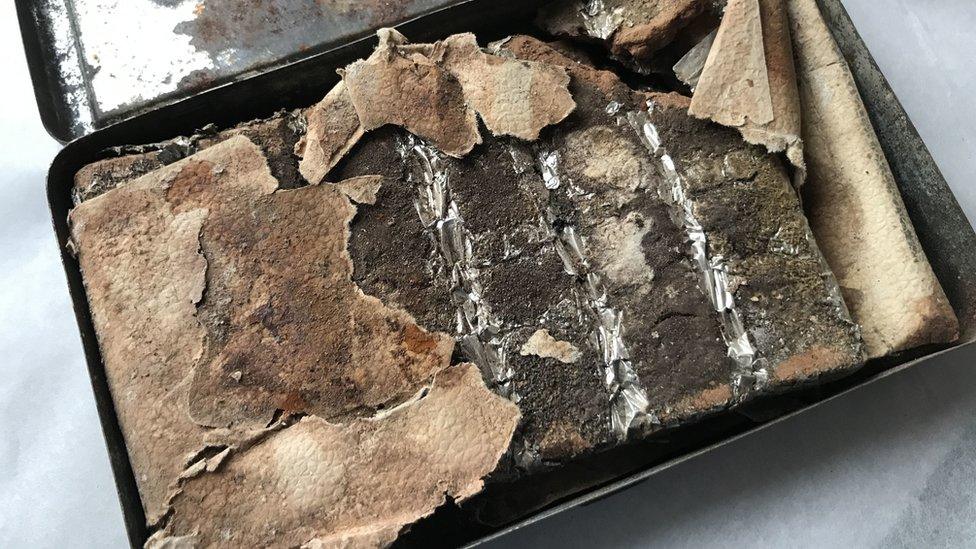
- Published17 August 2020
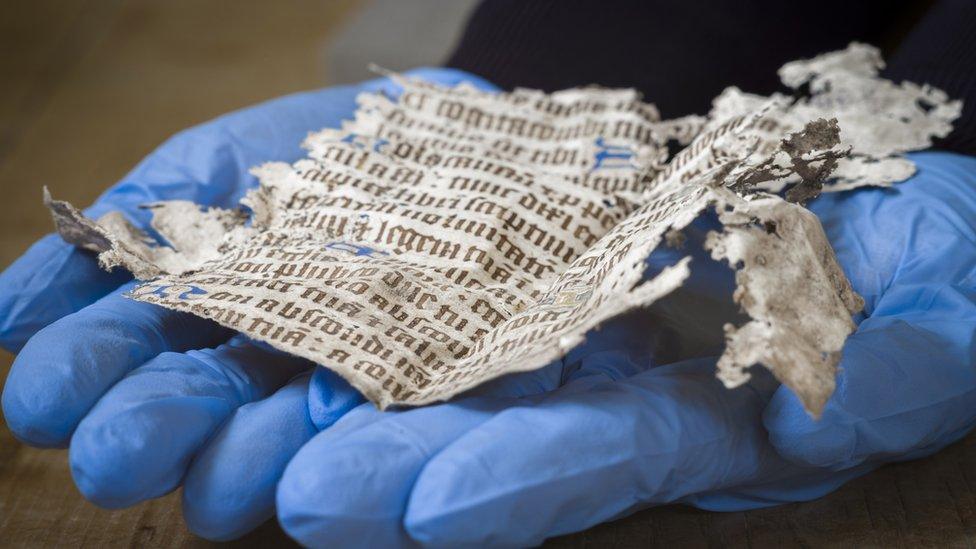
- Published23 August 2011
